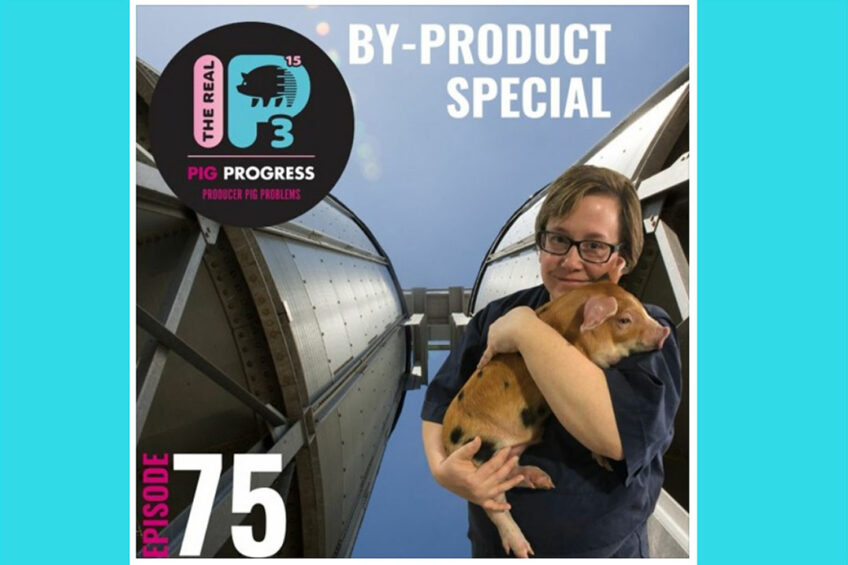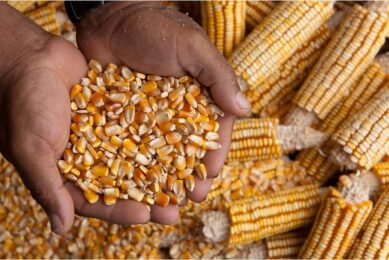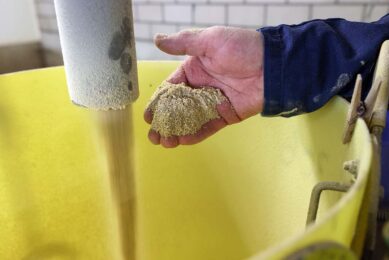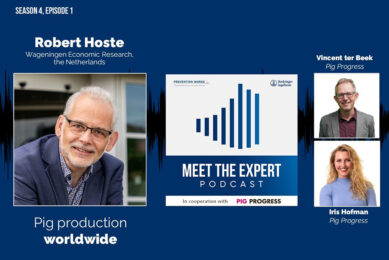Podcast: By-product special – Insights from Dr Bradley’s career

This 75th episode of the Real P3 podcast concludes the 3-part series on by-products. In this episode, swine nutritionist Dr Casey Bradley speaks about a broader selection of ingredients and applications, sharing insights from her career and drawing on her many years of experience in the pig feed sector.
Bradley looks back on her career thus far and talks about some of her experiences. She has worked with both dry and liquid feed and got to learn about some interesting ingredients along the way. “I got to learn about things like the flushing of tanks from mayonnaise production, or ketchup…so depending on the day and what product they were making out of this plant depended on what by-product I had to deliver to my pigs,” she says, adding that this made it complicated to optimise nutrition in those circumstances. “But what was great was that I had all sorts of ingredients to use.”
Variations in products
During her time with AB Vista, she speaks about her journey of understanding variations in products, from source to source, region to region and even batch to batch, which could be influenced by processing conditions, sourcing of raw ingredients, food by-products, etc. Here she joined the National Animal Nutrition Programme and served on the feed composition committee for 5 years. Instead of having a static “holy grail” of the NRCs, the goal was to develop a living database of feed ingredients which could be filtered down by region or type of by-product on hand.
Sustainability
Some of the other topics discussed by Bradley in this episode include tryptophan, the practicality of a product, enzymes, digestibility, mill storage and handling, formula considerations, and mycotoxins. Casey also talks about sustainability and “the next frontier”.
She discusses insects and poses replacing ‘by-products’ with ‘opportunity ingredients’ and looks at the potential of creating a food protein from wood. Also, she highlights the huge amount of great human food waste that is thrown away and shares her thoughts on investigating the option of a food dehydrator at a school that can be powered by a solar panel.
The next frontier in swine nutrition, she says, is perhaps how we can optimise nutrition by synergising different feed additives, enzymes and by-products into formulations…
 Beheer
Beheer








 WP Admin
WP Admin  Bewerk bericht
Bewerk bericht